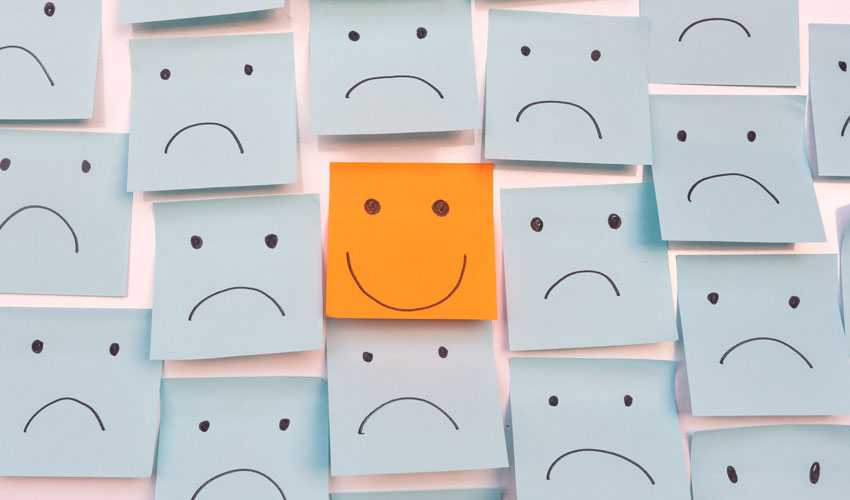Toxic positivity is the belief that one must maintain a positive attitude at all times, even when the situation is difficult to handle. Even though having a positive mindset has its advantages, suppressing negative emotions such as sadness, anger, or frustration during difficult times is unhealthy. The reality of life is that it is not always positive; therefore, accepting this reality rather than believing and engaging in a false positivity facade is critical.
Toxic positivity pushes positive thinking toward overgeneralized thinking. This mindset not only highlights the significance of optimism but also reduces and dismisses any human emotion that isn’t strictly happy or positive. Toxic positivity can silence negative emotions, diminish grief, and put people under pressure to pretend to be happy even when they are suffering. It may be self-imposed in some cases. A person, for example, may try to appear happy all of the time by portraying everything in a positive light. However, it can also be external pressure, such as when people tell a grieving person to move on or to find a silver lining in their loss.
Toxic positivity may look like this:
- Advising a parent whose child has died to be glad because at least they can have children.
- Claiming after a disaster that “everything occurs for a purpose.”
- Encouraging someone to look for the good sides of a tragic loss
- Advising someone to get over their loss or suffering and concentrate on the positive aspects of their life
- Advising someone to get over their pain or suffering and concentrate on the pleasant things in their lives
- Classifying people who always appear optimistic or do not disclose their emotions as stronger or more likable than others
- Urging people to thrive in the face of adversity, such as advising people that they must use their forced time at home during the COVID-19 pandemic to learn new skills or improve their fitness.
- Dismissing someone’s fears by replying, “It could be worse.”
Why is Toxic positivity unhealthy and how does it affect mental health?
For a long time, books and media have highlighted the importance and potential of positive thinking, and there is evidence to show that positive thinking does improve mental health. A recent study in the year 2018, which was conducted on college students, suggested that high self-esteem may support positive thinking. However, the data also suggested that factors such as social support and self-efficacy also affect a person’s well-being.
A generally optimistic attitude is not harmful. A person who believes they must only be positive, on the other hand, may disregard major problems or fail to address underlying mental health concerns.
Risks of Toxic Positivity include:
1. Ignoring genuine harm: According to a 2020 narrative analysis of 29 studies on domestic violence, a positive bias may enable people experiencing abuse to underestimate the severity of their assault and remain in abusive situations.
2. Demeaning a loss: Grief and sadness are natural reactions to loss. A person who continually receives signals to move on or be cheerful may believe that others are unconcerned about their loss.
3. Isolation and stigma: People who are under pressure to smile in the face of adversity are less likely to seek help. They may feel alone or ashamed of their emotions, which may discourage them from seeking help.
4. Communication problems: Every relationship faces difficulties. Toxic positivity pushes people to disregard problems and focus on the good. This strategy has the potential to sever communication and the ability to solve relationship difficulties.
5. Low self-esteem: Everyone has negative emotions from time to time. People are encouraged to ignore their unpleasant emotions when they are exposed to toxic positivity. Ignoring or avoiding unpleasant emotions is very unhealthy for the emotional well-being of an individual.
Toxic positivity and social media
Unfortunately, toxic positivity has become a trend on social media which has a negative impact on its users. For example, if a user is experiencing negative emotions but all they can see on the social media is that everyone is positive and extremely happy it may make them feel that they don’t have anyone to talk to about their feelings or may even feel that their negative emotions are not valid. Especially since the pandemic, the users are more inclined toward posting toxic positive statements and aesthetic graphics rather than facing the reality of the covid-19 pandemic.
How to tackle toxic positivity on social media:
- Unfollow/Mute – Unfollow any account that doesn’t bring you joy. If it’s a friend whose toxic positivity is weighing you down and you don’t want to unfollow them, you can limit or mute them and they won’t know.
- Self-Reflection- Recognize that your negative feelings are natural and healthy. Be self-reflective and mindful of how you interact with others.
- Journaling- Journaling can be an excellent way to express yourself. Journaling can assist in identifying and overcoming the feelings that a person is experiencing.
- Therapy- Seeking professional help from the best psychologists and psychiatrists is one of the most powerful ways to tackle the negative impact of toxic positivity. Through Therapy and counselling, one can learn that it is okay to experience negative emotions, and how to heal and make the required changes needed for a better emotional and mental well-being.
Janhavi Mehta
Psychologist
Veda wellness and Rehabilitation.

